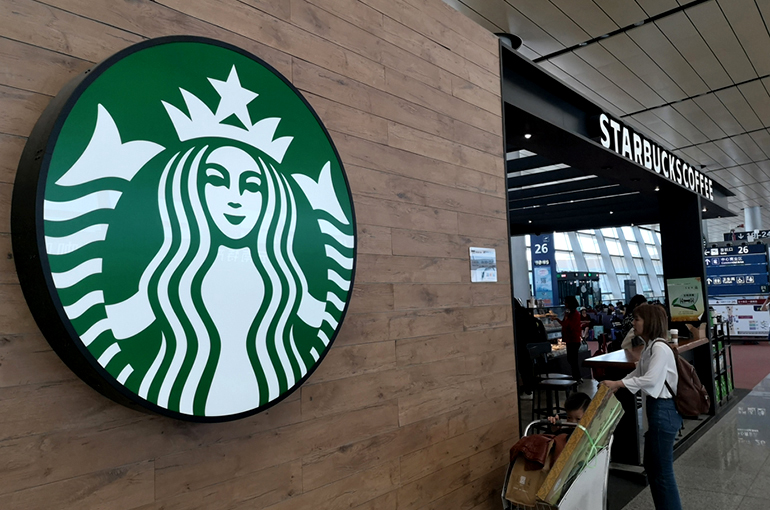 Starbucks, Burger King Stake Sales Signal Deeper China Localization, Not Exit, Experts Say
Starbucks, Burger King Stake Sales Signal Deeper China Localization, Not Exit, Experts Say(Yicai) Nov. 14 -- Plans by Starbucks Coffee and Burger King to sell majority stakes in their China businesses have prompted speculation of a foreign brand exodus, but actually reflect a push for greater localization amid intensifying competition rather than a retreat, according to experts.
The pair are not exiting the China market, said Huang Feng, president of the Shanghai Foreign Investment Association. They are adjusting their operating models, he said.
Chinese private equity firm CPE will invest USD350 million for an 83 percent holding in a new joint venture that will operate Burger King restaurants in China, it was revealed on Nov. 10. A week earlier, Starbucks announced that it would be selling a 60 percent stake in its China business to Boyu Capital for about USD4 billion, forming a joint venture with the PE firm.
Huang said that handing local teams control of operations and expansion, cutting cross-border management costs through an asset-light model, and promoting full-chain localization spanning capital, operations, and talent will become an increasingly popular strategy for foreign brands.
“These foreign brands have underperformed in recent years, with many seeing stalled expansion or shrinking profits,” said Zhan Yubo, director at the Institute of Economics, Shanghai Academy of Social Sciences. The main factor has been intensifying competition, which they have struggled to respond to effectively, he said, adding that not all foreign consumer brands face such difficulties.
Retail chains such as Aldi and Walmart’s Sam’s Club are growing quickly in the Chinese market. “Ultimately, success hinges on whether foreign companies can adapt to the evolving trends and competitive landscape of China’s consumer market,” Zhan pointed out.
He added that intensifying competition is structural and affects all market participants, not just foreign firms. Foreign brands once enjoyed large customer bases thanks to their products and experiences, but the market now offers more choice, Zhan said. Full-chain localization has emerged as one viable strategy for foreign companies to adjust to these changes, he noted.
Starbucks and Burger King are illustrative. Burger King’s store expansion has slowed sharply, dropping from 257 new outlets in 2023 to just 26 so far this year. Last year, Burger King China had average annual sales of USD400,000 per store, compared with more than USD1 million across nine other international markets. Starbucks, meanwhile, faces intense pressure from fast-growing domestic chains such as Luckin Coffee and Cotti Coffee.
Other brands rumored to be exploring a sale of their China operations, including Häagen-Dazs and Ikea, have also struggled. Ikea China’s revenue was CNY11.2 billion last year, nearly 30 percent below its 2019 peak of CNY15.8 billion.
Contrary to the “foreign retreat” narrative, a source at a restaurant chain association told Yicai that China’s vast consumer market continues to attract investment. Many investors treat the food and beverage sector as a core asset class, the person said. Foreign brands are particularly appealing because of their high degree of standardization and predictable growth, scale, and profitability. “The Starbucks project, for example, was highly sought after,” he added.
One party needs localized resources and operational capabilities, while the other seeks strong assets and believes in the long-term growth of the Chinese dining market, according to analysts. When both sides share complementary needs and the valuation is right, deals come together naturally, they point out.
Editor: Emmi Laine